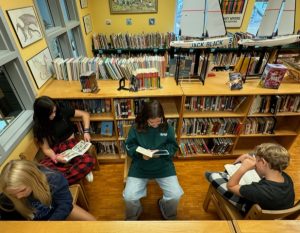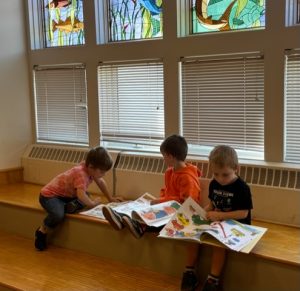School Counseling and Social Emotional Learning (SEL)
Once a week scheduled library time finds a place in the school counseling program for a number of reasons. Reading is an excellent form of self-regulation. In prioritizing library time in the weekly schedule, we are teaching values and ensuring students have a comfortable, positive relationship to the library as a resource. Kids learn how to behave in a library, how to browse, how to check out books, and how to settle into the experience of reading.
Counseling
School counselors provide short-term, brief, solution focused counseling. Students at Brooklin School are seen by the school counselor as needed to help them through tough spots, identify obstacles to learning, help them with anxiety, self-esteem, grief, social conflict, anger management and family struggles. School counselors by definition do not carry a case load, and refer out students who need long-term counseling. Brooklin School now has an in-school clinical counselor that receives those referrals.
Each class and all of the staff are introduced at the beginning of the year to the referral system for individual school counseling. Students are taught to self-assess or “level” their need and to fill out a small form which indicates that level and helps prioritize who to see. All students know that in an emergency they do not need to fill out a form. We talk about what defines an emergency and how the levels 1-3 are determined.
Collaboration
The school counselor consults with teachers and collaborates with parents to help identify obstacles and support a positive school experience for all students. This could mean helping to initiate an IEP or a 504; helping families find community resources; addressing sources of truancy; locating ongoing mental health services; facilitating communication within the school; or resolving social conflict.
Professional School Counselor


